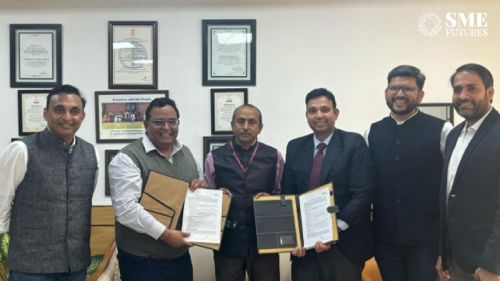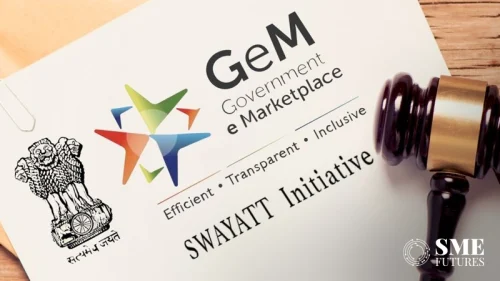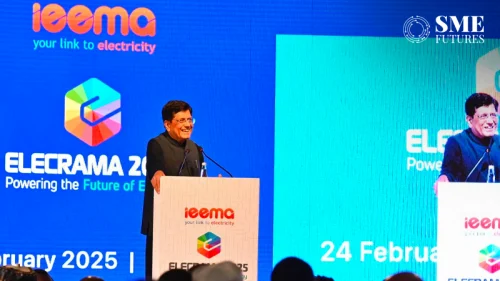According to a survey conducted by PayPal, a digital payment platform, 52 per cent of Indian MSMEs saw a positive business impact following the pandemic. While more than a quarter of those who are already selling on social media started doing so during the pandemic, and more than half of all surveyed SMBs saw it as a key driver of growth in the previous 12 months. Furthermore, 66 per cent of India’s MSMEs claimed to have embraced social media after witnessing their competitors do so.
PayPal, conducted “MSME Digital Readiness Survey” in partnership with Edelman Data and Intelligence. The survey aims to understand how Indian MSMEs have adapted during the pandemic by adopting a digital-first approach while leveraging the global opportunity and their key priorities to scale up.
Conducted between October to November 2021, the survey assesses the impact of COVID-19 on small businesses that have an online presence. The results are based on interviews with 250 business decision markers of India’s small and medium enterprises, which are defined as having an annual turnover of Rs 5 to less than 250 crore.
After two years of the pandemic, the survey noted that 52 per cent of small businesses witnessed a positive impact on their business once economies began to reopen. In fact, 29 per cent of the MSMEs found that the business environment in India became more favourable for online sales and for 31 per cent the cross-border opportunity was promising.
Consumer adoption of digital continues to benefit MSMEs
There’s been a shift in consumer behaviour induced by the lockdowns. It has paved way for purchasing from virtual stores. MSMEs have positively seen a 65 per cent increase in online buying from customers and close to 80 per cent shared that their consumers are more receptive to using different payments options. The ease, accessibility and adoption of digital methods has led 51 per cent of MSMEs to see an increase in spending from existing customers while 46 per cent witnessed an increase in repeat purchases.
Building an owned online presence is a key priority going forward
MSMEs have shown great resilience and tenacity to overcome the downfalls of COVID-19 by leveraging the digital opportunity and increasing their online presence. Currently, 66 per cent of MSMEs use social media as an online selling channel, followed by the marketplace (62 per cent), company-owned platforms i.e. app (61 per cent), own e-commerce website (54 per cent) and third-party e-commerce platforms (54 per cent).
Unlike third-party platforms, owned company channels typically provide business owners with more flexibility, control and freedom when selling online. With the change in consumer behaviour, businesses are also shifting their priority – intentions to adopt a company e-commerce website and company-owned platforms to engage in online selling are highest at 29 per cent and 28 per cent, respectively.
This is important for India’s MSMEs as 49 per cent of respondents express a keen interest in developing their own website or app. However, this independence does bring with it some concerns, most notably the availability of technical expertise. Over half of the respondents (56 per cent) who do not currently sell on their own channels cited a lack of technical knowledge as being the number one barrier
Social media to be a key growth enabler for businesses
Digital has been a key growth driver for Indian small businesses. Like Singapore and Hong Kong, social media is the most popular online selling channel. It has been noted that 26 per cent of those who are already selling on social media began to do so during the pandemic and 56 per cent of surveyed MSMEs saw it as a key driver for growth in the last 12-months.
While user-friendly interface (67 per cent) and natural transition from non-sale purpose to selling (67 per cent) are top reasons to utilise social media platforms for selling, a notable reason for embracing it is competition. Business is more competitive now than it ever has been. 65 per cent of Indian MSMEs claimed to have embraced social media after seeing their competitors do the same.
Apart from the fact that selling on social media is extremely easy and promotes healthy competition, it has also helped brands understand and educate their audience on social causes.
Close to 100 per cent Indian MSMEs agree that cross border trade must be a business priority over the next year
Adoption of cross-border in India is high – 64 per cent of the merchants had adopted cross-border before the pandemic while 35 per cent did during the pandemic. Out of all, 86 per cent MSMEs selling globally claimed that they recorded growth in cross border trade during COVID-19.
Much of this success can be attributed to the reopening of other economies and positive sentiment from global consumers. 94 per cent recognised that transcending borders results in growth and are making cross-border trade a business priority moving forward.
Technology is taking business beyond borders
MSMEs have called out certain challenges associated with doing business across borders like high costs (74 per cent), exchange related issues (31 per cent), and fraud-related concerns (30 per cent). To overcome such issues, MSMEs have been partnering with third-party online selling platforms, developing their own websites and apps, digitizing internally preparing for online selling, and adopting a global payment system.
Digital payments and technology backed seamless check-out experience are a focus area says Indian MSMEs
As more and more Indian MSMEs embrace digital, investment into their digital journey has become a key priority. 98 per cent of the surveyed businesses have expressed an interest to invest in more payment options. Of this, 95 per cent are looking to introduce newer ways of payment and 89 per cent are keen on optimizing card payments. This is followed by optimization of services to accept digital wallets like PayPal (70 per cent).
An emerging area of interest for small businesses is the check-out experience they provide to customers. Close to 40 per cent are planning to invest towards improving the checkout and payment process in order to increase sales. The key reasons to do so as stated by the small businesses is to accept payment from new digital sales channels (60 per cent), integrate loyalty schemes (57 per cent), expand new, local payment methods to sell cross border (56 per cent), amongst others.
With increased competition, businesses are fighting for a consumers share of wallets. 49 per cent of Indian MSMEs surveyed will invest in technology to offer a better customer experience. A seamless check-out experience will mean increased customer loyalty as well as the ability to expand their consumer base.











